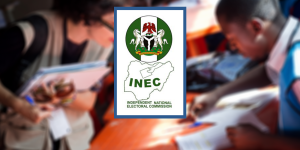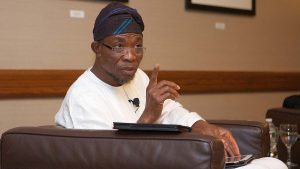Worrisome: Saudi Arabia and United Arab Emirates Military Relations With Sudan
Saudi Arabia and United Arab Emirates are not worried about Sudan’s economy which has been limping since the south of the country seceded in 2011, taking with it three-quarters of its oil output. Saudi Arabia and United Arab Emirates are not worried that Bread shortages have hit the country, with wheat traders blaming a foreign currency crisis for shortages of the staple that have left people queuing for hours outside bakeries.
Saudi Arabia and United Arab Emirates are not worried that the economic situation used to be good and the purchasing power people had was reasonable, but conditions are bad now, the goods are expensive, and so people are unable to buy them.
Saudi Arabia and United Arab Emirates are not worried about the living conditions in Sudan which are deteriorating. There are queues everywhere, for fuel, and at ATMs. You can’t even withdraw your money from the bank. You can’t get your salary. Everything has become very expensive and people don’t know what is happening. It feels like there’s a ticking bomb and we don’t when it will explode.
Sudan, a North African country has deployed troops to Yemen who are from the Rapid Support Force (RSF) paramilitary group, which is headed by Hemeti and is now part of the regular army. The Sudan military is fighting in Yemen on behalf of Saudi Arabia and United Arab Emirates. This is a worrisome new relationship that is financially induced. The Saudi Arabia government and United Arab Emirates have been outsourcing the ground war in Yemen to Sudanese men and boys from Darfur–turning many into child soldiers–paying impoverished people and directing them by radio so no Saudi soldiers need to be on the ground in Yemen. Al-Bashir deployed troops to Yemen in 2015 as part of a major foreign policy shift that saw Khartoum break its decades-old ties with Iran and join the Saudi-led coalition fighting in Yemen.
I am worried about the people of Sudan because Arab Gulf states are intervening more assertively in sub-Saharan Africa to capitalize on economic opportunities and protect their security interests. Sudan’s Rapid Support Forces is a leading force in the war in Yemen. Jajanweed is part of this force that is leading Saudi Arabia backed war in Yemen. They view Africa as a relatively uncontested arena in which they can experiment with foreign interventions as part of their strategy to prove their rising status on the world stage. The Kingdom of Saudi Arabia offered around $10,000 to families in Darfur, Sudan affected by the Sudanese civil war to send their children to fight in Yemen, the New York Times reported. The Saudi-led coalition has denied the accusations. Saudi Arabia has been recruiting children from desperate families in the war-torn African nation to pad up its frontlines in the Yemen war, the New York Times reported in 2018. Saudi Arabia offered around $10,000 to families in Darfur, Sudan affected by the Sudanese civil war to send their children to fight in Yemen against the Houthi rebels. In the article “On the Front Line of the Saudi War in Yemen? Child Soldiers from Darfur,” the newspaper quoted 16-year-old Hager Shomo Ahmed as saying: “Families know that the only way their lives will change is if their sons join the war and bring them back the money.”
Ultimately, Saudi Arabia’s ability to secure a commitment from the Sudan Armed Forces (SAF) must be analyzed within the context of Sudan’s domestic problems, which have left the country on the verge of total economic collapse. But support for Sudan is not being delivered without strings attached. Khartoum is now paying for the aid by fighting in Yemen. In the past several weeks, hundreds of Sudanese officers and soldiers have joined the roughly 1,000 SAF troops already fighting there. In October, Sudanese Defense Minister Awad bin Auf said, “There are 6,000 fighters from special forces, ground forces and elite troops ready to participate when requested by the leadership of the coalition. … Even if more troops and military contribution is needed, we are ready for any developments.” In the grander geopolitical picture, the elephant in the room is Iran, who is backing the Houthi rebels.
The new de-facto leaders are seeking legitimacy amid international pressure for a democratic transition. The fact that the military vows to continue to support the war effort in Yemen shows that the aid money that has been promised to Khartoum by Abu Dhabi and Riyadh is yielding results in their favour. Authoritarian stability for the UAE means that they have like-minded regimes in power across the region with whom they can do business. Abu Dhabi and Riyadh want simple strategic relations, with just one contact person to call should they need anything; a pluralistic political system means complexity in which you need to garner support from a variety of actors. Sudanese politicians are worried that by pumping money to the country’s rulers, Saudi Arabia and the UAE will attempt to mould the country’s governance to their liking. A soft landing for the old regime is being orchestrated by Middle Eastern powers so that they can keep their allies in power. The two Gulf States want Sudanese forces to remain in Yemen to defend the security of Saudi Arabia. Hundreds of Sudanese soldiers and officers are fighting in Yemen and have often suffered casualties spurring calls at home for withdrawal.
Saudi Arabia and the United Arab Emirates announced recently $3 billion of financial support in the form of $500 million in central bank deposits and a promised $2.5 billion in humanitarian support, including oil and gas transfers. In the delicate context of transition from 30 years of dictatorship under Omar al Bashir, some of those protesting for a full transfer of authority to a civilian government did not respond with gratitude to the announcement, reportedly chanting “Keep your money.”
In the last 12 months, Saudi Arabia and the United Arab Emirates have committed $6 billion (each) to Pakistan, $3 billion to Ethiopia, $10 billion to Bahrain, $2.5 billion to Jordan, $830 million to Tunisia, $1 billion to Iraq. While the focus here is on the UAE and Saudi Arabia, Kuwait is a frequent donor and provider of cash deposits, and Qatar provided ample support to Egypt between 2011 and 2013, made inroads to financially support Sudan and Somalia, and has made commitments to buy Lebanese debt just this year.
Riyadh announced recently said it had deposited $250m in Sudan’s central bank as part of a support package for the country following the overthrow of al-Bashir.
“The ministry of finance has deposited 937.5 million Saudi riyals into the central bank of Sudan,” it said in a statement.
The move will strengthen Sudan’s “financial position, alleviate pressure on the Sudanese pound and achieve more stability in the exchange rate,” it added.
In April, Saudi Arabia and the United Arab Emirates pledged $3bn in financial support for Sudan following the overthrow of longtime leader Omar al-Bashir, $500m of which would be injected into the African country’s central bank. The remaining sum will be used to help provide food, medicine and petroleum products, according to the SPA.
The head of Sudan’s military council recently met Abu Dhabi’s crown prince recently, who expressed the United Arab Emirates’ support for Sudan as it navigates a transition after the ouster of Omar al-Bashir, Emirates news agency (WAM) reported.
Lieutenant General Abdel Fattah al-Burhan’s visit to the UAE came on the heels of a trip to Egypt and a visit by his deputy, General Mohamed Hamdan Dagalo, to Saudi Arabia. UAE, Saudi Arabia and Egypt are trying to consolidate their influence in Sudan after Bashir was toppled and arrested on April 11 following three decades as president.
A top Sudanese general has vowed to back regional ally Saudi Arabia against “all threats and attacks” from its rival Iran during talks held with the kingdom’s powerful crown prince, Sudan’s ruling military council said. Sudan is standing with the kingdom against all threats and attacks from Iran and Houthi militias,” Dagalo, who goes by the nickname Hemeti, told the crown prince during their meeting, the council said in a statement.
Analysts believe the Saudi-UAE alliance and Egypt have thrown their support behind the country’s military council to counter a civilian uprising demanding democratic rule. Earlier in the month of May, the head of Sudan’s ruling military council, Abdel Fattah Al-Burhan, visited neighbouring Egypt. The visit marked his first trip abroad since the army ended the 30-year rule of authoritarian Omar Al-Bashir rule and began to govern the country.
Burhan met with Egyptian President Abdel Fattah Al-Sisi, himself a former military chief who got the top job after leading the ouster of Egypt’s first democratically elected leader, Mohammed Mursi. Despite sour relations between the two neighbouring countries over border disputes and dams on Nile waters, the two North African nations have recently cultivated close ties.
Saudi Arabia and the UAE want to expand the role of the military in Khartoum so that they are the kings in the background. Sudan stands with the kingdom against all threats and attacks from Iran and Houthi militias. Dagalo, who would later become the leader of a militia group that became Bashir’s main source of power, is also the architect of Sudan’s military campaign in the war in Yemen. Since 2015, Sudan has made a significant military contribution to the Saudi-led Yemen war, in which it has lost hundreds of its soldiers. Support for Sudan’s military council is by no means limited to state visits.
![]()



